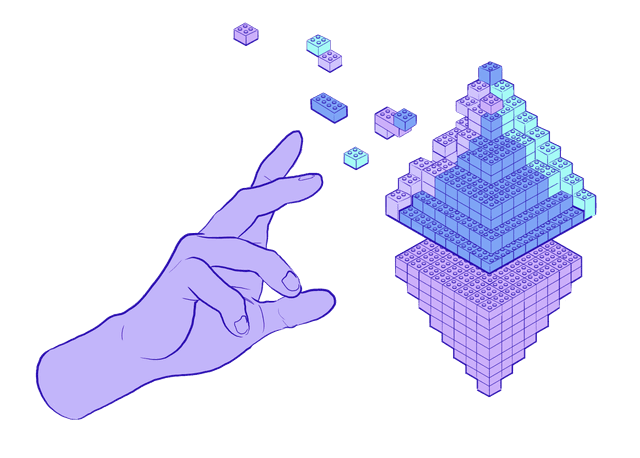https://ethereum.org/en/developers/
Developers
A builders manual for Ethereum. By builders, for builders.
How would you like to get started?
Learn Ethereum development
Read up on core concepts and the Ethereum stack with our docs.
Learn through tutorials
Learn Ethereum development step-by-step from builders who have already done it.
Start experimenting
Want to experiment first, ask questions later?
Set up local environment
Get your stack ready for building by configuring a development environment.

SpeedRunEthereum banner
Learn all the most important concepts by building on Ethereum
SpeedRun Ethereum(opens in a new tab)
About these developer resources
ethereum.org is here to help you build with Ethereum with documentation on foundational concepts as well as the development stack. Plus there are tutorials to get you up and running.
Inspired by the Mozilla Developer Network, we thought Ethereum needed a place to house great developer content and resources. Like our friends at Mozilla, everything here is open-source and ready for you to extend and improve.
If you have any feedback, reach out to us via a GitHub issue or on our Discord server. Join Discord(opens in a new tab)
Illustration of blocks being organized like an ETH symbol Help us make ethereum.org better Like ethereum.org, these docs are a community effort. Create a PR if you see mistakes, room for improvement, or new opportunities to help Ethereum developers.Contribute(opens in a new tab)

Explore the documentation
Introductions
An introduction to blockchain and Ethereum
An introduction to cryptocurrency and Ether
An introduction to decentralized applications
An introduction to the Ethereum stack
How the web3 world of development is different
Using Ethereum with familiar languages

Doge using dapps
Fundamentals
Contracts or people on the network
The way Ethereum state changes
Batches of transactions added to the blockchain
The Ethereum virtual machine (EVM)
The computer that processes transactions
Ether needed to power transactions
How blocks and transactions are verified in the network
An overview of Mainnet and the test networks
How new blocks are created and consensus was reached using proof-of-work
Information on Ethereum's mining algorithms
The stack
The logic behind dapps – self-executing agreements
Tools for helping speed up development
Using JavaScript to interact with smart contracts
Using libraries to interact with smart contracts
Your portal to Ethereum data
Security measures to consider during development of smart contracts
How to handle dapp storage
IDEs that are suitable for dapp development
Advanced
An overview of accepted token standards
Maximal extractable value (MEV)
An introduction to maximal extractable value (MEV)
Getting off-chain data into your smart contracts
Solutions for faster transactions
Introduction to the Ethereum networking layer
Introduction to the data structures and encoding schema used in the Ethereum stack